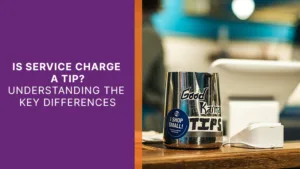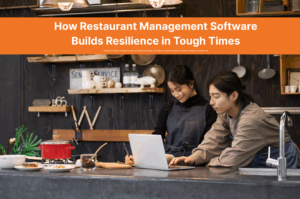Updated on: September 26, 2024
In the fast-paced world of food service, vendor management is one of the backbones of operations, influencing everything from quality to cost.
Effective vendor management can lead to better product availability, improved service levels, and enhanced profitability, making it a critical focus for any food service organization. Understanding how to navigate the complexities of vendor relationships is essential to achieving sustainable success in this competitive industry.
Unfortunately, many businesses fall victim to common pitfalls, such as neglecting communication or basing decisions solely on price. These mistakes can damage relationships, lead to inconsistent supply chains, and ultimately affect customer satisfaction. Recognizing these pitfalls and applying best practices is key to fostering successful vendor partnerships that benefit both parties.
This article delves into essential ingredients for effective vendor management in food service. From building strong relationships to leveraging technology, we will explore practical tips and strategies to enhance your vendor management process. Whether you’re new to the industry or seeking to refine your approach, these insights will help you confidently navigate the vendor landscape.
Importance of Vendor Management
Vendor management is an indispensable aspect of the restaurant industry, deeply influencing everything from kitchen efficiency to customer satisfaction.
By selecting the right vendors, restaurants can meet specific needs and achieve organizational goals, such as cost savings and streamlined onboarding processes. Strong vendor relationships are not only about securing competitive prices; they’re a cornerstone in maintaining a smooth operation amid the often turbulent supply chain.
Effective vendor management safeguards against potential disruptions, ensuring timely delivery of goods that meet rigorous quality standards. Through a strategic vendor management process—which involves researching, sourcing quotes, and evaluating a vendor’s reputation and capacity—restaurants can cultivate positive relationships that transcend mere transactional interactions.
This process is key in controlling food costs, which are pivotal for a restaurant’s bottom line. Moreover, excellent vendor management is central to risk mitigation, promoting the kind of real-time visibility into inventory levels that empowers informed decision-making. In doing so, restaurants can consistently deliver exceptional value and experiences to their patrons, fortifying the allure of dining out – an experiential commodity that is as dependent on operational mastery as culinary artistry.
Common Mistakes in Vendor Management
Managing vendor relationships is crucial to successful restaurant operations, yet common mistakes can hinder efficiency and, ultimately, customer satisfaction.
One significant error is the lack of timely payments due to the complexity of dealing with multiple food vendors, resulting in disorganized payment schedules. Without automation, it’s challenging to maintain a seamless vendor management portal, which can lead to late payments.
Furthermore, inconsistent ordering practices can easily lead to avoidable inventory shortages. Accurate stock levels are essential for a restaurant’s smooth operation, but this goal is difficult without constant monitoring and real-time visibility into inventory levels.
Poor accounting practices amplify these issues. When orders and invoices are managed manually, the likelihood of human error in financial records increases, affecting food costs and informed decisions. Also, without automated vendor management systems, restaurants lose critical visibility into vendor performance and delivery schedules, compounding operational inefficiencies, and sometimes not catching price fluctuations.
Lastly, clear and proactive communication is the foundation of positive vendor relationships. Any breakdown in this communication can lead to unresolved delivery times and quality standards issues, disrupting the vendor management processes and the overall supply chain, ultimately impacting the restaurant’s ability to meet customer needs.
Vendor Management Tips
Effective vendor management is integral to efficient and effective supply chain management, achieving cost control, and enhancing profitability within the restaurant industry.
By deploying a disciplined strategy that includes intelligent negotiation of prices and adherence to terms, restaurants can solidify their bottom line. Technology solutions are particularly useful in this endeavor; vendor management systems offer ordering automation and comprehensive vendor performance tracking. These systems support data-driven decision-making, empowering restaurateurs to make more informed choices concerning their partnerships.
Diversifying suppliers is another key strategy to fortify against supply chain volatility. This proactive move not only mitigates potential disruptions but also helps ensure continuity of operations. Opting for a consistent payment schedule, like setting specific dates for processing all vendor payments, also aids in avoiding late fees and elevating cash flow management.
Essentially, drafting a vendor management strategy with clear objectives and detailed tracking can cultivate efficient relationships with vendors, potentially unlocking more value for the restaurant.
We have a few ideas on managing relations with your restaurant vendors to achieve the best outcomes for your restaurants.
Establish Good Relations
A foundation of trust and outstanding service-oriented relationships with vendors can culminate in mutually beneficial partnerships with significant long-term value.
Prioritizing punctual payments to vendors is vital for sustaining stronger relationships, a positive reputation, and avoiding potential disruptions tied to invoice management. Your vendors are naturally going to like and generally be more inclined to go out of their way to help people who make their lives and work easier.
It’s equally crucial to monitor vendor performance meticulously against set key performance indicators like on-time deliveries and product quality to maintain high standards and fortified supplier relationships.
Regular, transparent dialogue ensures that issues are resolved swiftly and alignment on expectations is maintained. Proactive risk management measures, such as supplier diversification, further buffer the restaurant from unexpected vendor-related challenges.
Know Who To Call
Effective communication is the cornerstone of vendor management, ensuring all parties stay aligned and issues are addressed promptly for seamless operational flow.
Every organization has that one person who just knows how to make things happen no matter what. One of your primary business goals should be to know what that person is and become friendly with them. This goes for every organization you work with, but especially your vendors.
You should understand who is who and who does what with your vendor partners. Uncertainty is a huge operational challenge; having this knowledge helps you overcome that challenge.
Scheduled meetings with vendors foster continuous feedback loops, including performance assessments, promoting collaborative improvements. Implementing a vendor management system that uses key performance indicators to track compliance with contractual obligations is essential for maintaining established quality standards in food safety, service, and cleanliness.
Regular evaluations, including customer feedback, can prove invaluable to confirm that vendor relationships continue to meet the restaurant’s evolving needs.
Negotiate
Negotiation is an art that, when exercised with vendors, can greatly benefit a restaurant’s operational and financial standing.
By setting clear goals and conducting thorough research before initiating discussions, a restaurant can develop both fair and advantageous contracts. While price is often a focal point, negotiations should also encompass terms like product quality and delivery schedules, which play an outsized role in the daily service and customer experience.
Identifying specific negotiation areas, such as the improvement of delivery schedules, can boost operational efficacy without incurring extra costs. Recognizing negotiation’s many facets is key to improving profit margins and the restaurant’s success overall.
If you don’t consider yourself a particularly skilled negotiator, don’t despair. If you have the budget, you might consider hiring a purchasing agent with this skill set. Maybe one of your managers knows a thing or two about bargaining and can have this responsibility added to their job description.
If not, negotiating is a skill set that can be learned and improved with practice. Consider reading good books on the subject or taking courses from a local college’s continuing or adult education program.
Buy From Multiple Vendors
Purchasing from a single supplier can be tempting.
You get to know them, you develop a pretty good sense for the quality of food they provide, you’re acquainted with the availability of ingredients they offer, and the entire procurement procedure can be easier because there’s just one firm to work with.
Ultimately, choose the vendors that work best for your business model.
Buying from multiple vendors provides restaurants with the flexibility to navigate sourcing, especially when costs fluctuate.
Smaller, local suppliers often offer superior quality ingredients, enhancing the food served and overall customer experience. While selecting vendors, a balance between cost and quality must be maintained, focusing not solely on price but on the product’s value. Establishing relationships with specialty vendors for particular ingredients can ensure consistent, high-quality supply.
Streamlining procurement through effective vendor management practices is paramount for the overall operational efficiency of a restaurant.
Don’t Choose A Vendor Based Solely On Price
Going with the lowest bidder is another compelling temptation, especially in the restaurant business where margins are thin. But don’t be fooled, always going with the lowest bidder can come with very high unexpected costs.
Selection of vendors based purely on price can result in compromised service and food quality and consistency, which becomes particularly pronounced with perishable goods. It can also come with reduced customer service quality.
Frequent vendor changes to cut costs can disrupt supply reliability and strain existing vendor relationships. Effective vendor management processes give weight to a vendor’s reputation, capacity, and communication capabilities. Instead of ad hoc price-based vendor selection, contractual pricing stability offers cost predictability. Open communication can foster stronger vendor relationships and, over time, may lead to opportunities for cost negotiation without quality sacrifice.
Never Stop Shopping Around
The previous point notwithstanding, you should never disqualify new potential vendors.
The vendor management process must be dynamic for restaurant operations to remain agile and financially optimized.
Regular performance evaluation, adhering to service-level agreements, and maintaining high service standards confirm that restaurants can identify and address issues rapidly.
Researching, sourcing, and regularly evaluating vendors ensures potent selection and ongoing assessment of existing relationships. Punctual payments underscore these relationships, nurturing trust and paving the way for future collaborations and better rate negotiations.
Use Technology
Vendor management technology facilitates meticulous tracking and analysis of supplier performance, augmenting informed decision-making capacities for restaurants.
Automation through vendor management software lessens manual labor and elevates visibility into vendor relations, enabling better control over costs and operations. Inventory and purchasing management software and electronic procurement systems contribute to an automated ordering process and efficient tracking of inventory levels.
Utilizing a centralized vendor management solution can significantly streamline process management, reducing the risks associated with supply chain disruptions and heightening vendor performance.
Vendor Management Software
Vendor Management Software (VMS) has emerged as an invaluable tool within the restaurant industry, pivotal for maintaining strong vendor relationships and ensuring the smooth operation of supply chains.
At SynergySuite, we’ve taken decades of collective experience in the software and restaurant industries to develop an award-winning suite of software applications to help you streamline every aspect of your enterprise, including vendor management.
By offering a centralized purchasing platform, our software significantly improves visibility into inventory levels and vendor costs and performance, which is crucial for upholding quality standards and managing food costs.
The software automates tasks like managing requests for proposal (RFP), tracking delivery schedules, and processing vendor invoices. This automation saves labor and minimizes errors and delays, leading to a more swift and reliable operation. Moreover, VMS is instrumental for restaurants to gain real-time visibility and make informed decisions when supply chain disruptions occur.
An effective vendor management strategy, supported by SynergySuite, allows for continuous monitoring of vendor performance. Our applications ensure relationships with vendors are more efficient and symbiotic, benefiting both the restaurant and its suppliers.
SynergySuite serves as a complete restaurant management system, streamlining vendor interaction and promoting a proactive approach to managing a complex network of restaurant vendors.
We’d love to show you how our intuitive and easy-to-use applications can be tailored to your enterprise with a free, personalized demo. We’d love to chat, so contact us today!






